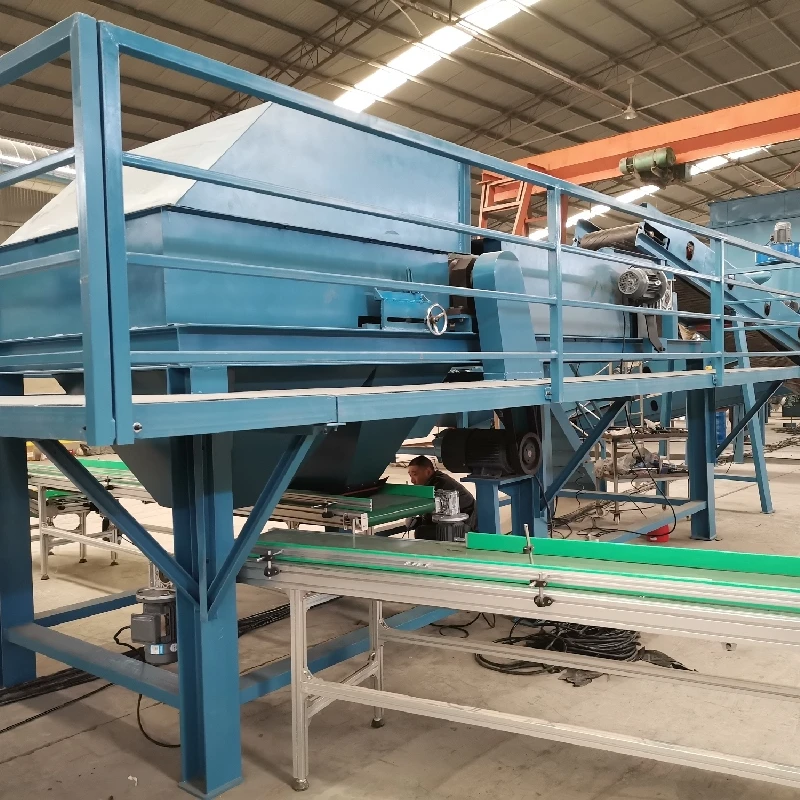

нов . 28, 2024 00:44 Back to list
The Importance of E-Waste Bins in Promoting Sustainable Technology Practices
In our rapidly advancing technological age, electronic devices have become an integral part of our daily lives. From smartphones and laptops to kitchen appliances and entertainment systems, the reliance on electronic gadgets continues to grow. However, this surge in consumption brings with it a significant environmental challenge electronic waste, commonly known as e-waste. To address this pressing issue, the concept of e-waste bins has emerged as a critical component in promoting sustainable technology practices.
E-waste encompasses a wide array of discarded electronic devices, which often contain harmful toxins, including lead, mercury, and cadmium. These substances can leach into the soil and groundwater, posing a serious risk to both human health and the environment. According to the Global E-waste Monitor, approximately 53.6 million metric tons of e-waste were generated worldwide in 2019, a number that is projected to rise dramatically in the coming years. This staggering figure highlights the urgent need for effective e-waste management solutions, and e-waste bins play a pivotal role in this process.
The Importance of E-Waste Bins in Promoting Sustainable Technology Practices
One of the key benefits of e-waste bins is their ability to facilitate the recycling process. When electronic devices are properly disposed of, they can be disassembled, and valuable materials such as copper, gold, and plastic can be recovered. This not only reduces the strain on natural resources but also minimizes the energy consumption associated with manufacturing new products. According to reports, recycling one million laptops can save the equivalent energy needed to power 3,000 homes for an entire year.

Additionally, e-waste bins contribute to raising awareness about the importance of responsible e-waste disposal. Many people are unaware of the environmental impact of improper e-waste disposal, often resorting to throwing old devices in regular trash bins. By placing e-waste bins in public spaces such as shopping malls, schools, and community centers, organizations can educate the public about the hazards of e-waste and the significance of recycling. Education campaigns that accompany the installation of these bins can further enhance community engagement and awareness about sustainable practices.
The implementation of e-waste bins also highlights the importance of collaboration between governments, businesses, and citizens. Local authorities can partner with recycling companies to ensure that the collected e-waste is processed responsibly and efficiently. Furthermore, businesses that produce electronic devices can take responsibility for their products at the end of their life cycle by participating in take-back programs and encouraging customers to utilize e-waste bins. This collaborative approach is essential for creating a circular economy, where materials are reused, recycled, or refurbished rather than discarded.
While the establishment of e-waste bins is a significant step towards mitigating the e-waste crisis, it is crucial that individuals also take personal responsibility in their technology consumption. This includes making informed decisions about purchasing electronic devices, such as opting for energy-efficient models and supporting brands with take-back programs. Moreover, individuals should consider repairing and refurbishing devices rather than replacing them, which can effectively extend the lifespan of electronics and reduce e-waste generation.
In conclusion, e-waste bins represent a practical and effective solution to the growing problem of electronic waste. By providing a convenient means of disposal, promoting recycling, and raising awareness about responsible practices, these bins play a crucial role in fostering a culture of sustainability. As we continue to embrace technology in our everyday lives, it is vital that we also take steps to protect our planet for future generations. By integrating e-waste bins into our communities and encouraging responsible consumption, we can collectively work towards a cleaner, greener future.
Latest news
The Future of Metal Recycling: Revolutionizing Waste Management
NewsMay.14,2025
Optimizing Waste with Recycling Lines
NewsMay.14,2025
Municipal Solid Waste Sorting Line: Revolutionizing Waste Management
NewsMay.14,2025
Metal Shredders: Essential Tools for Efficient Recycling
NewsMay.14,2025
Maximize Your Profits with a Copper Wire Granulator
NewsMay.14,2025
Home Metal Shredder: A Smart Choice for Your Home Recycling Needs
NewsMay.14,2025